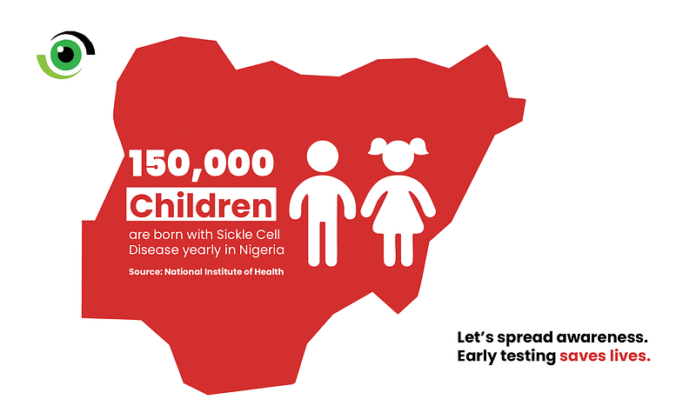Dr. Maureen Achebe, Director at Harvard Medical School and Associate Professor of Medicine, has raised serious concerns over the rising burden of sickle cell disease across Sub-Saharan Africa, especially in Nigeria. She revealed that the region’s economic toll from the disease, currently estimated at $9.1 billion annually, could rise to $10.2 billion by 2030.
Speaking at a public lecture hosted by the Centre of Excellence for Sickle Cell Disease Research and Training (CESRTA) at the University of Abuja, Dr. Achebe described Nigeria as the global epicenter of the condition. She reported that Nigeria alone accounts for around 150,000 of the 300,000 babies born with sickle cell disease in Sub-Saharan Africa each year.
Dr. Achebe highlighted the urgent need for the Nigerian government to adopt nationwide newborn screening programs. She explained that babies with the condition often appear healthy at birth, making early detection crucial to providing life-saving interventions. According to her, interventions like vaccination, malaria prevention, folic acid supplements, and antibiotics can dramatically improve survival rates and quality of life.
She also warned that up to 80% of Nigerian children with sickle cell disease die before reaching age five, a tragic statistic that can be reversed with timely care and awareness. Emphasizing the genetic origin of the disease, she encouraged deeper public understanding to reduce stigma and improve management strategies.
In her remarks, Professor Obiageli Nnodu, Director of CESRTA, echoed the need for more awareness, research, and access to quality healthcare. She affirmed the centre’s commitment to improving lives through education, advocacy, and patient care.
Also speaking at the event, the Acting Vice-Chancellor of the University of Abuja, Professor Patricia Lar, stressed the importance of voluntary premarital screening. Represented by Professor Titus Ibekwe, Provost of the College of Health Sciences, she said screening helps couples make informed decisions that can prevent the birth of children with the disease.

